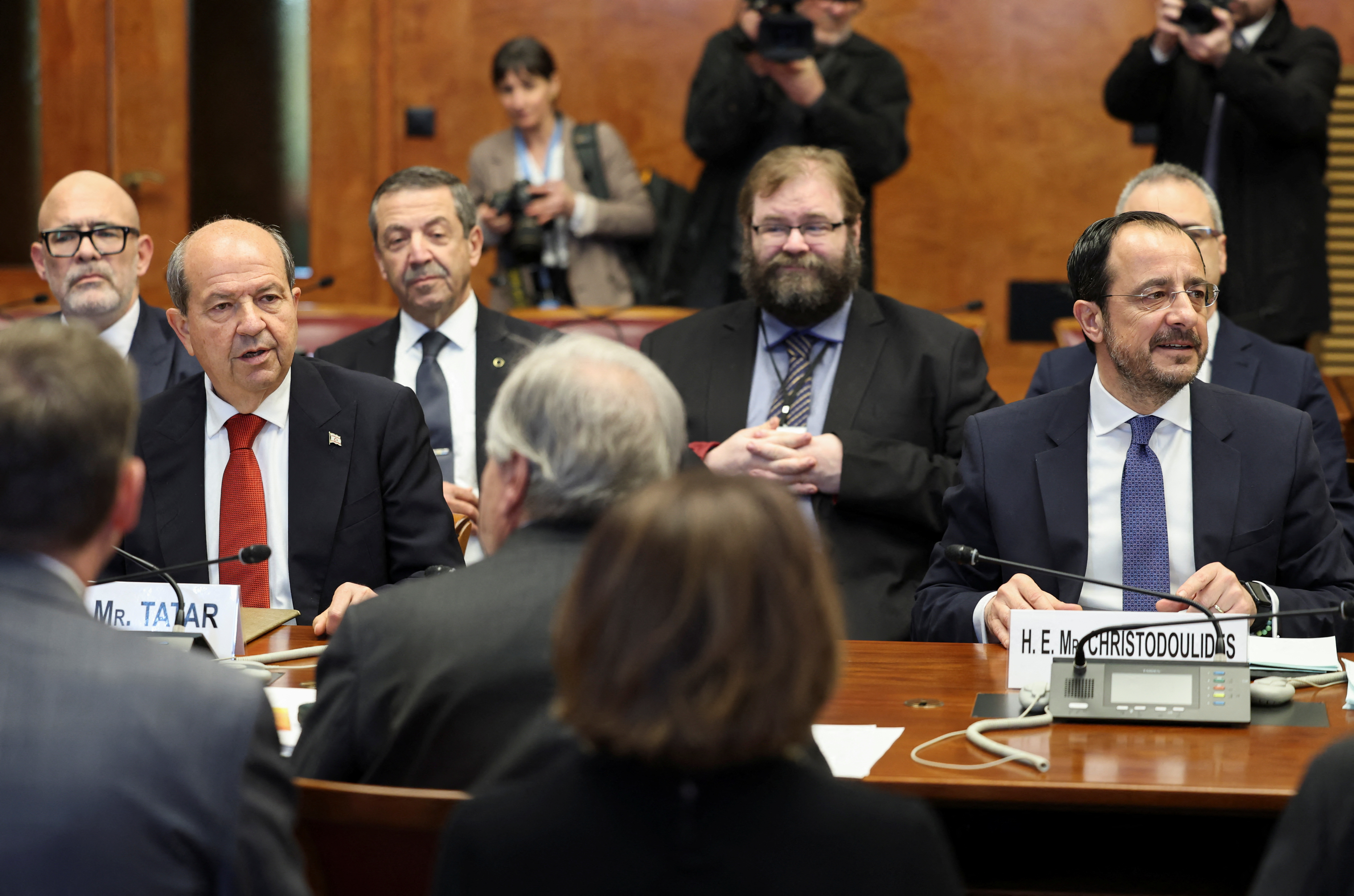Everyone appears to have left Geneva relatively happy on Tuesday. It may be more accurate to say ‘not unhappy’ – anything else would be stretching it – because the anodyne outcome of the informal, five-party meeting was something everyone could live with for the time being. The low-stakes process imposed allows the two sides to stay in their respective comfort zones, at least until the next multi-party meeting in four months. It is still a process and there had not been one for eight years.
UN Secretary-General Antonio Guterres put aside the search for common ground, the resumption of talks, the agreed framework and the separate sovereignty, issues the two sides had been banging on about, and instead secured agreement on six confidence-building measures. He also secured agreement for the appointment of a personal envoy, who will presumably assist the sides in implementing the measures they agreed to in Geneva as well as trying to prepare a meeting in July.
Press reports suggested that Turkish Cypriot leader Ersin Tatar opposed the appointment of a personal envoy but consented after a private chat with Turkey’s foreign minister Hakan Fidan; he was also unable to restrict the duties of the envoy to the confidence-building measures. Turkey, as was expected, adopted a relatively positive approach in Geneva, because its primary objective is participation in the EU’s security planning, which Fidan did not want to put at risk by taking the familiar tough line at the meeting.
Ankara has a strong incentive to appear constructive, given that EU-Turkey relations have been linked to progress in the Cyprus problem, something President Nikos Christodoulides keeps reminding Turkey about. He had tried to secure the participation of an EU representative at the Geneva meeting but failed, having to content himself with the presence of a Commission technocrat, as an observer. He arranged, however, for a letter signed by European Commission president Ursula von der Leyen and European Council president Antonio Costa to be sent to Guterres regarding the talks. The letter fully supported the Greek Cypriot position on a settlement.
It was a smart move by Christodoulides to show the real interest in the talks by Brussels, as this put a little pressure on Turkey. The question now is whether he intends to use this to achieve progress or would he be satisfied with the positive publicity he earned from Brussels and congratulations he reportedly received from von der Leyen at the European Peoples’ Party conference for the work he did in Geneva? We are all waiting to see what his intentions are.
Guterres proposed six confidence-building measures, the first being the opening of four new crossing points. Christodoulides’ intentions will be gauged from the way he approaches this matter, bearing in mind the calculated way in which he scuppered the opening of the Mia Milia crossing by introducing additional proposal and talking about reciprocity. In fairness, Tatar could put a spanner in the works himself as he never wanted the opening of more than two crossings. This and the proposal for the setting up of a solar farm in the buffer zone are the two measures likely to cause disagreement. The others – demining, creation of technical committee on youth, initiatives on climate change and restoration of cemeteries – seem straightforward and should progress without difficulties.
We will have an idea about the true intentions of the two sides and the direction in which this low-key process will go over the next few months. The two sides could engage in the familiar bickering over the way Guterres’ measures would be implemented or they could adopt a constructive attitude and pave the way for a more meaningful meeting in Geneva in July. The UNSG’s personal envoy could also play a decisive role when he or she arrives, but ultimately progress depends on the two leaders, neither of whom gives the impression he is very keen to drive the process forward.






Click here to change your cookie preferences